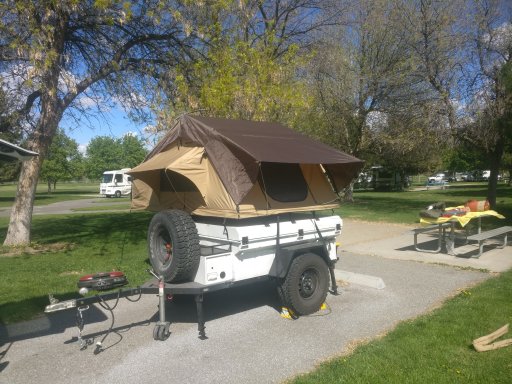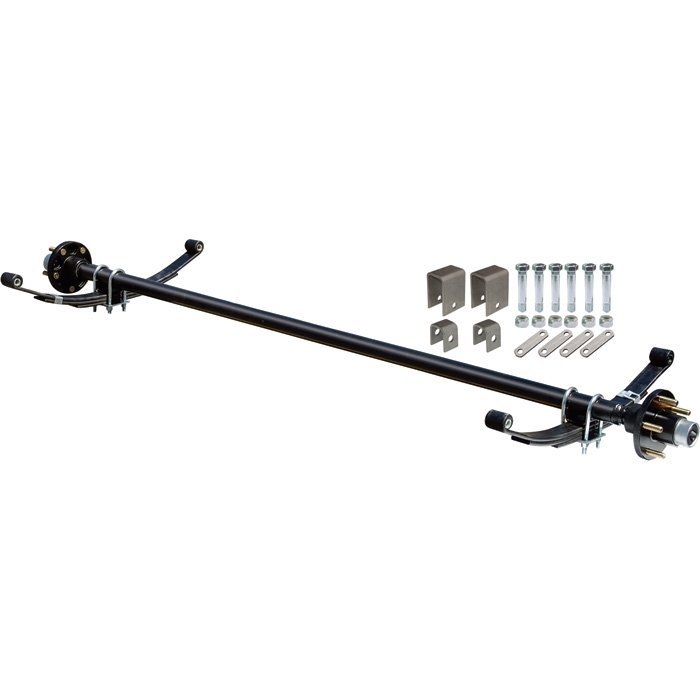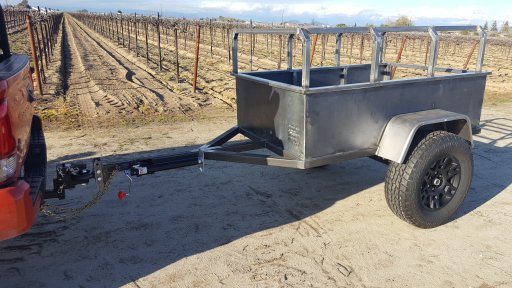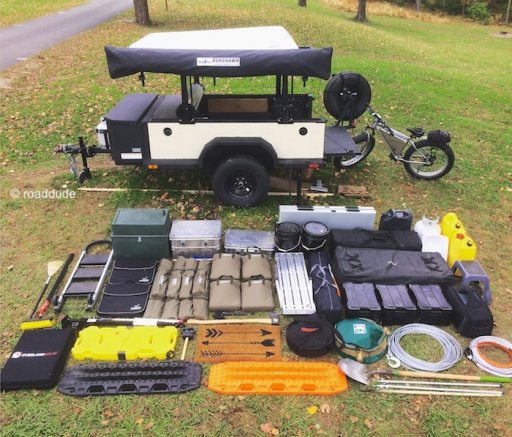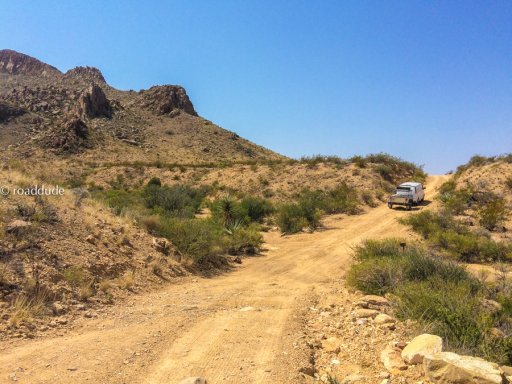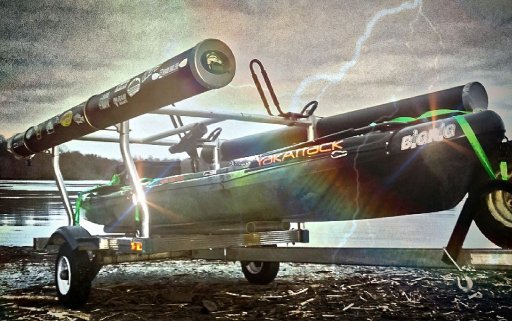@Hank Outdoors
I have a torsion axle on my XV-2 and am very pleased with it. Didn't build the trailer myself, though did play with a couple 1/4 ton military trailers before going this route and did some extensive research on axle ratings and axle types. It's what holds everything up, so I wanted to get it right. I kind of get compulsive about researching and learning shit like this.
I'll be honest and say I think a lot of people building up 1/4 ton military trailers like I have, or Harbor Freight frames, or starting from scratch building their own put
too heavy of an axle underneath. Sounds good, sounds more beefy and rugged for off-road, so we think yeah, that's what
I need!
Too heavy an axle, and too stiff of a suspension for the typical camping load almost 100% of us carry, and you'll end up with a trailer that will transfer road shock, act stiff, won't absorb bumps, and will bounce hard along trail or highway even when fully loaded. It'll jerk you around in the tow vehicle. That stiffness transfers to your cargo when loaded and creates worse behavior when empty or lightly loaded. I've talked with more than one guy who started with a heavy duty 4200# or 4500# rated axle and springs under a light trailer who later swapped down in rating or swapped down in rating
and changed axle type.
I want a trailer I can load to the max with camping, photography, and off-grid gear--which is actually all light stuff compared to most trailer loads--but that I can load up with things like building materials and landscape timbers as well, when needed.
I pestered
Schutt Industries--the Wisconsin-based manufacturer of over 55,000
military trailers for governments around the world and industry standard
commercial trailers--for info on axle ratings they use under their
XVenture off-road trailers. Schutt is the most experienced trailer builder I know. I mean I pestered them, convinced I needed a 4200# rated Dexter axle. After long conversations with them and others,
posting on ExPo for advice from builders, crawling around under trailers at cargo trailer places and any homemade trailer I could find, I realized I had stars in my eyes and that I should go with a torsion axle rated for 2300#.
My XV-2 is 1200# empty and is rated, with this axle, to carry 2375 lbs, for a gross vehicle weight of 3275#. I've included an image below of the load I had on last long trip.
After hauling my trailer around the country for more than 10,000 miles through all kinds of terrain and on all kinds of road, from dirt to gravel to macadam, with a full load of camping and photography gear, I'm super pleased with its performance and its torsion axle rated for 2300#. The way it handles road shock on the highway and bumps and rocks and uneven terrain when back country is terrific. I hardly know it's there. The thing I notice most is how my trailer stays level when hitting a dip, bump, or obstacle on one side or the other. That wheel and its end of the torsion axle absorbs the difference, but my trailer stays more level and my cargo is less affected than it would be with a straight axle.
I have no hop or stiffness when under-loaded, and no struggle or extra bounce from being over-loaded and bottoming out--for lack of a better term--the torsion ends of the axle. Oh, I've had the trailer airborne a couple times from going over desert trails too fast and coming up and over an obstacle unexpectedly, but she calms right back down into rolling smooth and tracking straight. It really is something to see.
Here's an interesting and informative short vid on how torsion axles work:
You can see how the wheel moves and would absorb road shock while the axle stays calm.
Here's an interesting thread at ExPo on
Dexter Torsion Axle or Timbren Axle-less with a very illuminating
post #16 by Schutt Industries. In his post he says:
The trick to get this design to perform optimally for civilian use is to ensure you are at least at 75% of the axils (sic) capacity.
What we see more times than not in the civilian market is that users rarely load more than 1200lbs of cargo into their trailer. Tents, Awning, Fridges, ATV's (if you have an XVENTURE), Photographic Equipment, Food, Cooking Gear, etc., are all fairly light. 1000lbs of cargo is quite a lot of stuff.
The trailer itself is usually around 800-1200lbs empty, which brings the total GVW to 1800-2200 LBS fully packed. So even with a 3200lb axil the total payload is barely over 50% of the axil rating.
He follows up on axle types best for camping type trailers in
post #18.
Hope this helps in choosing an axle type and rating for your trailer,
@Hank Outdoors - let us all know what you end up doing and how it works out, so others can learn from it here and so OB can become a good repository for well-researched solutions for off-road trailers.
Dry roads and open skies, buddy, looking forward to what you put together!
Road
View attachment 51725
All of the cargo above, with the exception of the bike, went in or on the trailer.
View attachment 51726




